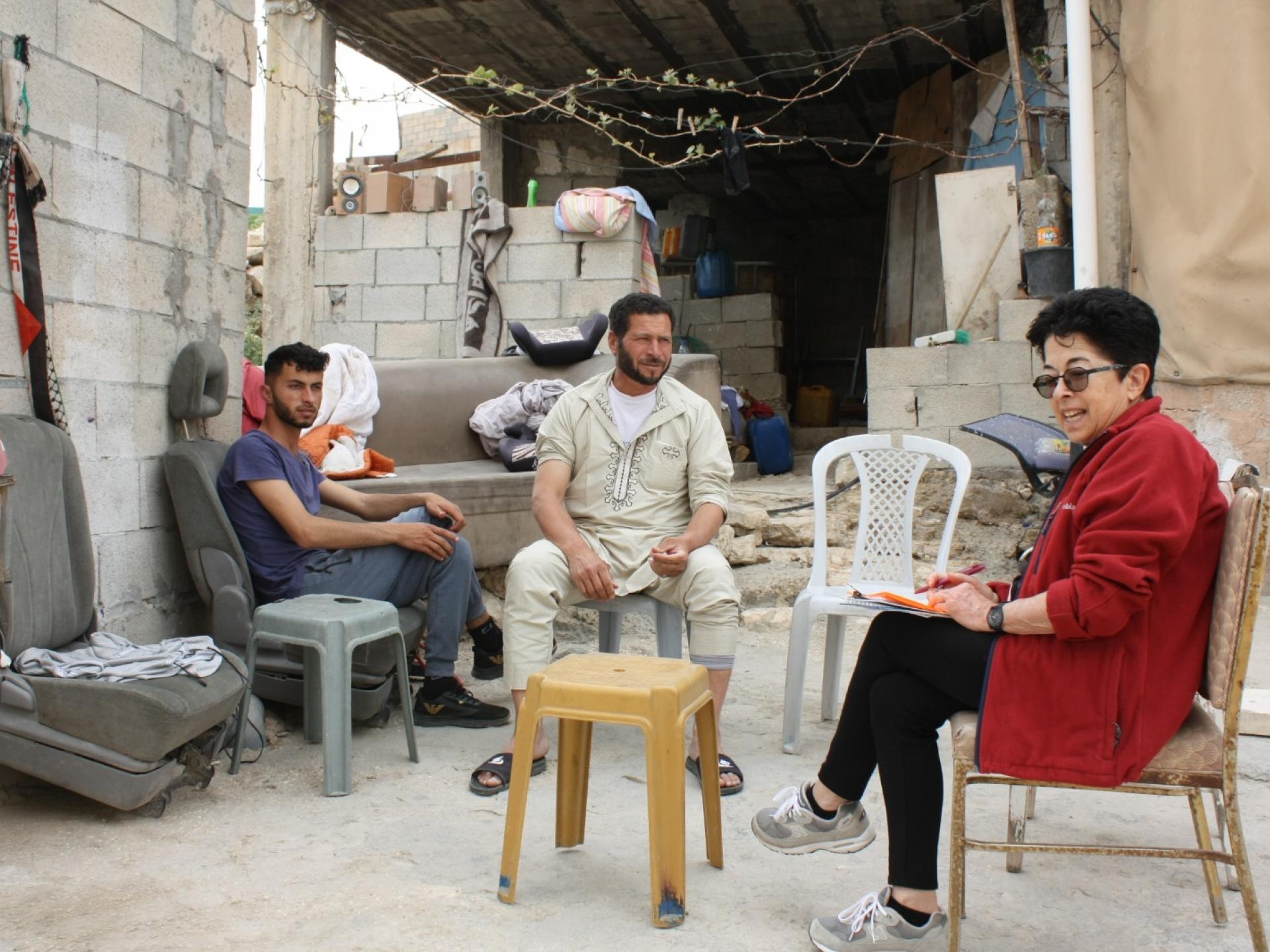At-Tuwani - the army stops settler violence due to documentation
We went to At-Tuwani, to meet Nasser and Bassel al-Adara. According to them, the situation is getting worse and worse, the settlers allow themselves to hurt more and more. In the last few days, they patrolled the entire area, claiming that their sheep had been stolen. They allow themselves to search inside the houses, make barriers and check. When an army is ordered, they leave the place, but later return.
The day before our visit, they killed some sheep (documented in the activists' post), cut water lines, pinched car wheels. In practice, the settlers are in the area all the time and do not allow the locals to roam freely.
Some of the residents of the villages are unable to cultivate the fields, or take the sheep out to pasture, because they come to frighten and drive them away. Even at night, the settlers are active: for example, they light a small fire in the area, and inform the police that the Palestinians did it. Then the army comes to them, goes around the village and searches.
In At-Tuwani, the army and the police intervene more and act against the settlers, because they have many people who document (guests and local activists).
In more distant villages, the settlers allow themselves more, without hindrance.
Nasser tells us that he received a donation for the purchase of a transportation vehicle, for transporting the children of the villages in the surrounding area to school.
Azzam, from Susiya, also tells about the daily incidents and vulnerabilities in them.
We met everyone at home, because the visit was held on Passover, when there is a general closure on the territories and they don't go to work!
on the territories and they don't go to work!
We have added a video filmed in At-Tuwani: Nasser with a soldier. It emphasizes a phenomenon we have recently seen in the Southern Hebron Hills: soldiers hide their faces. Sometimes in corona masks or woolen hats.

